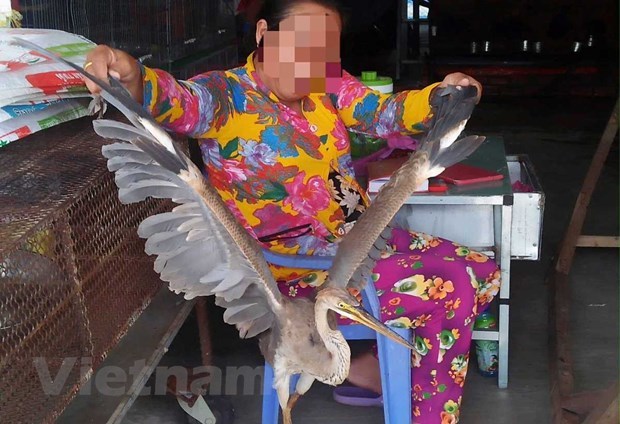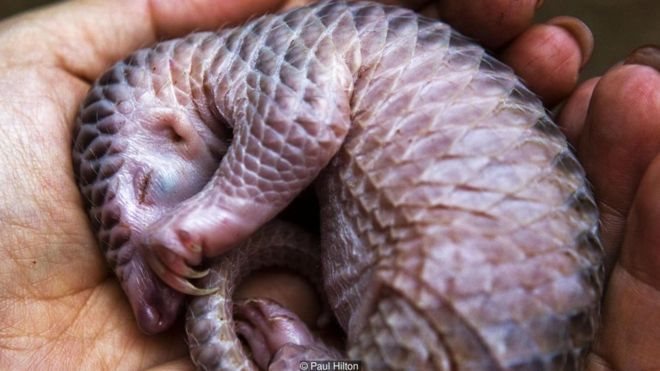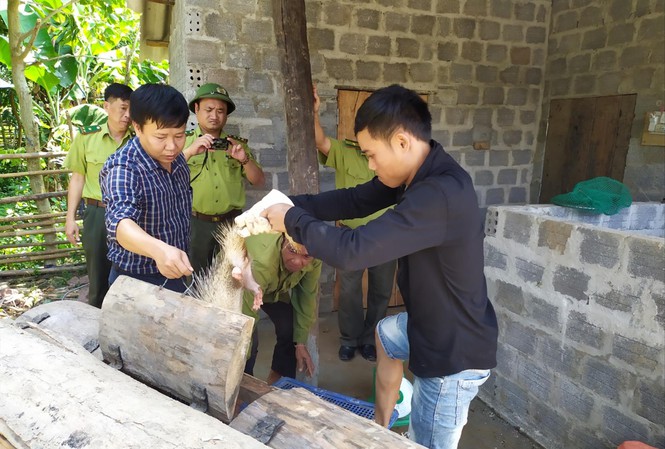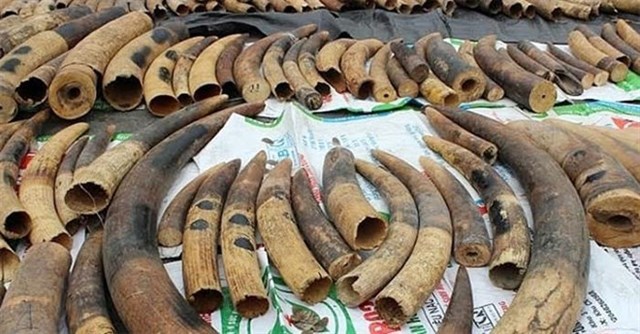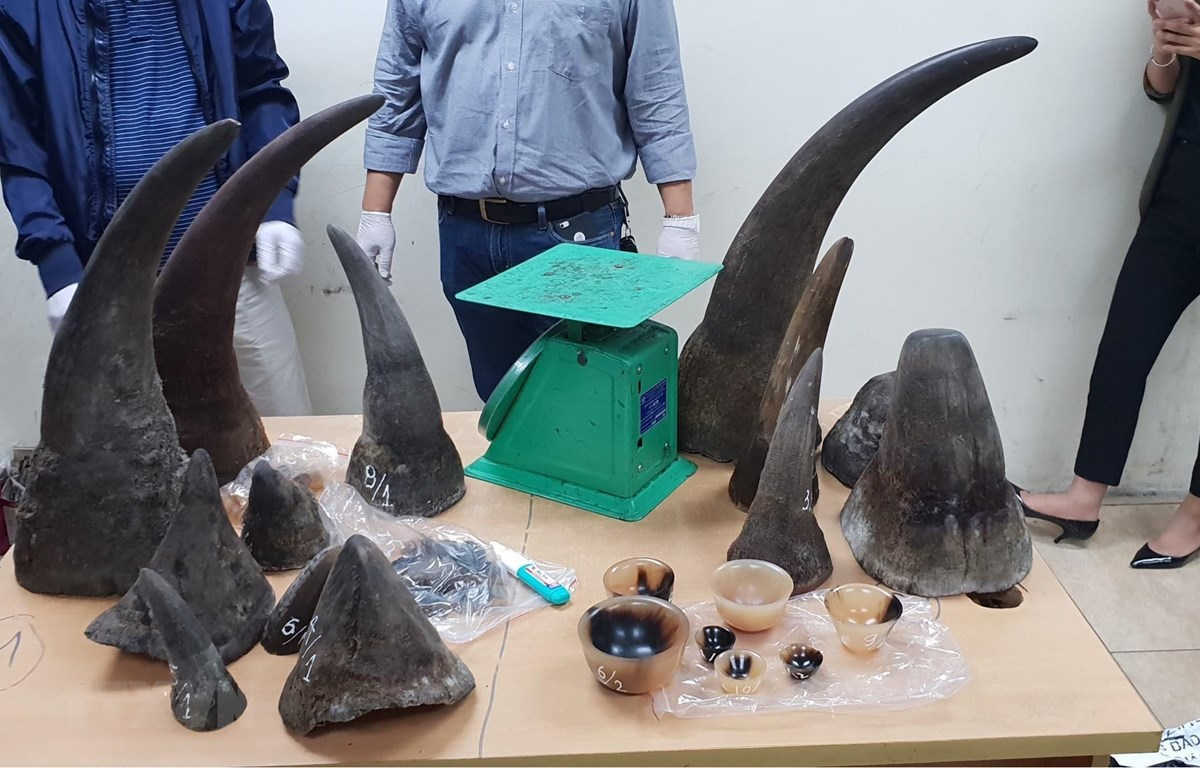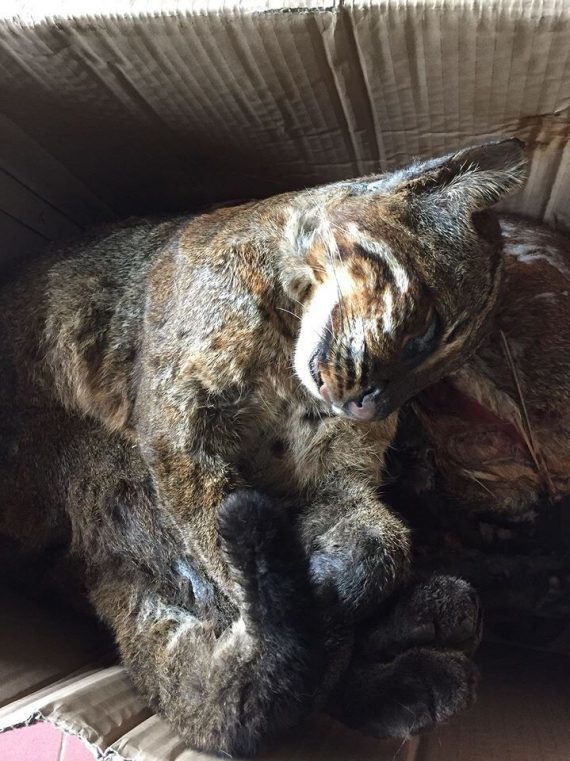- © Copyright of Vietnamnet Global.
- Tel: 024 3772 7988 Fax: (024) 37722734
- Email: evnn@vietnamnet.vn
wildlife trafficking
Update news wildlife trafficking
Farm produce market sells red-book wild animals
 Along the border line with Cambodia is an area called the southern ‘wildlife metropolis’.
Along the border line with Cambodia is an area called the southern ‘wildlife metropolis’.
More work needed to fight trade fraud, smuggling: customs agency
 More measures are needed in the fight against trade fraud and illegal cross-border smuggling between Vietnam and other countries, which continues to be a problem, the General Department of Customs has said.
More measures are needed in the fight against trade fraud and illegal cross-border smuggling between Vietnam and other countries, which continues to be a problem, the General Department of Customs has said.
Vietnam spends big money to preserve endangered pangolins
 Around VND85 billion will be spent to conserve pangolin species under the emergency action plan for the conservation of pangolin species in Vietnam in 2020-2030, to be submitted to the Prime Minister.
Around VND85 billion will be spent to conserve pangolin species under the emergency action plan for the conservation of pangolin species in Vietnam in 2020-2030, to be submitted to the Prime Minister.
Elephant tusk and aloeswood seized at Tan Son Nhat International Airport
 Customs officers at HCMC’s Tan Son Nhat Airport have seized an elephant tusk and a huge amount of aloeswood from a Vietnamese man who was attempting to illegally transport the goods into the home country.
Customs officers at HCMC’s Tan Son Nhat Airport have seized an elephant tusk and a huge amount of aloeswood from a Vietnamese man who was attempting to illegally transport the goods into the home country.
Wild animals illegally traded in Phong Nha-Ke Bang National Park
 Many wild animals have been found to be illegally kept at a household located in the buffer zone of the central province of Quang Binh’s Phong Nha-Ke Bang National Park.
Many wild animals have been found to be illegally kept at a household located in the buffer zone of the central province of Quang Binh’s Phong Nha-Ke Bang National Park.
Over 7.4 tonnes of ivory, pangolin scales seized in Hai Phong
 Customs and police officers in the northern city of Hai Phong have discovered 3,446 kg of ivory and 3,977 kg of pangolin scales hidden inside a container.
Customs and police officers in the northern city of Hai Phong have discovered 3,446 kg of ivory and 3,977 kg of pangolin scales hidden inside a container.
Wildlife trafficking increases in Vietnam as demand continues to rise
 Vietnam is among 16 countries with a high level of biodiversity and is also among the biggest hot spots for wildlife trafficking.
Vietnam is among 16 countries with a high level of biodiversity and is also among the biggest hot spots for wildlife trafficking.
Vietnam takes step forward in dealing with wildlife trafficking
 The year 2018 witnessed new efforts in preventing and fighting against wildlife trafficking in Vietnam with a number of strict judgments made.
The year 2018 witnessed new efforts in preventing and fighting against wildlife trafficking in Vietnam with a number of strict judgments made.
Local agencies respond differently to wildlife trafficking cases
In early November, the Kon Tum provincial police discovered a large amount of wildlife carried on a bus that went through the province. The wildlife seized included crocodiles and turtles of different species.
Environmentalists urge sanctions on wildlife poachers, traffickers
VietNamNet Bridge - Environmental protection organizations have suggested that local authorities be responsible for controlling and stopping wildlife consumption in their localities.
Wildlife in danger as demand from restaurants rises
Encouraged by profits, restaurant owners are hunting for precious wildlife and serving dishes made from animals listed in the Red Book.
The workers who rescue and save wildlife
VietNamNet Bridge - Saving and rehabilitating wounded wild animals and releasing them back to the forests are the main tasks of workers and officers at the Hanoi Wildlife Rescue Center.
Dak Nong: illegal slaughtering and sale of wildlife meat continues
Fewer wild animals can now be found in forests, and more wildlife meat is being sold at markets in Dak Nong, called the ‘wildlife metropolis’.
Turtles, snakes of wildlife sellers escape over border, entering shopping malls
VietNamNet Bridge - In the Mekong Delta provinces of Long An, Dong Thap and An Giang, numerous signboards of establishments selling snakes, turtles and birds of different kinds can be seen.
Law on wildlife crimes takes effect, but enforcement still weak
On January 1, 2018, the 2017 amended Criminal Code with stricter provisions and heavier sanctions on wildlife crime took effect.
Wildlife trafficking: the animal market in Laos
Reporters travelled 2,000 kilometers in Laos recently to discover how wildlife are carried to Vietnam. Departing from Hanoi, they crossed the Long Sap border gate in the northern province of Son La to Laos.
Wildlife trafficking: The ring that provides tigers soaked in alcohol
Snake, wild cat and tiger cubs kept in alcohol have been selling well because of increasingly high demand.
Wildlife trafficking world – Demand for animal bone glue
The demand for animal bone glue, especially tiger bone glue, is high as people believe the glue can help improve health. More and more tigers have been killed and traffickers are earning big money from glue sales.
The largest vault of wildlife skulls and horns in Hanoi
A group of reporters from Tap chi Bao ve Rung va Moi Truong (Forest and Environment Journal) have been able to penetrate a large-scale wildlife trafficking ring which carries out both domestic and cross-border affairs.
Wildlife trafficking continues despite tough laws
The number of wildlife trafficking cases has been increasing at a breakneck speed in recent years. Advertisements for the sale of precious and endangered wildlife species can be found on social networks, forums and websites.
